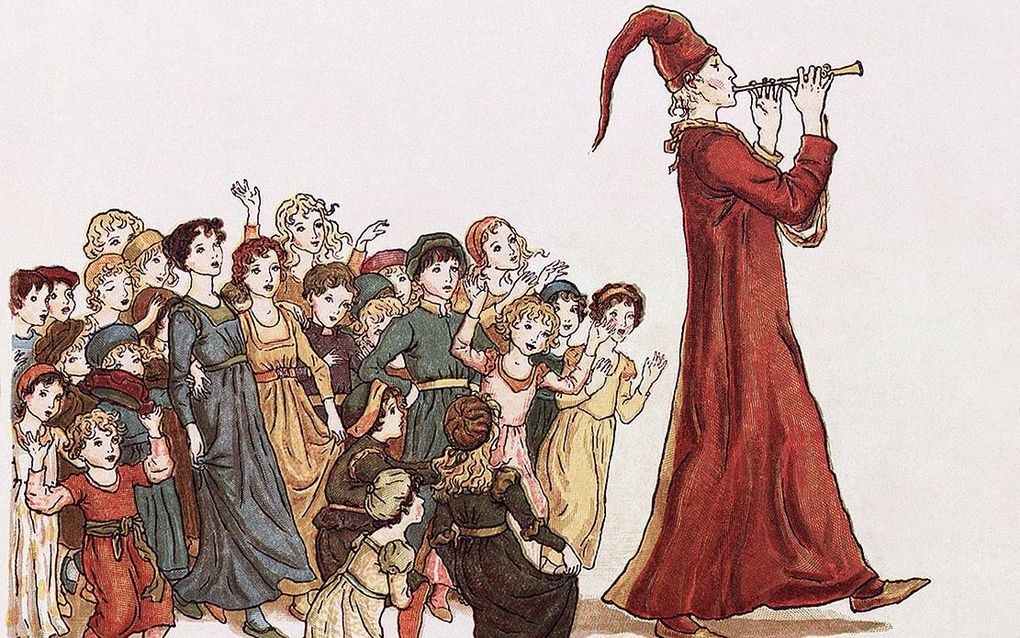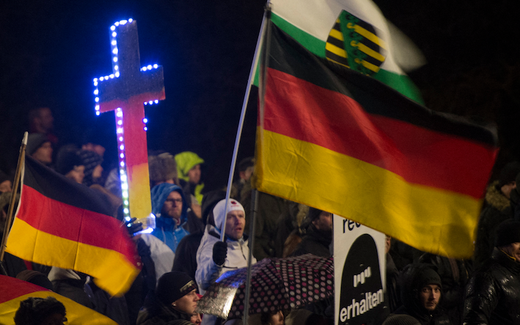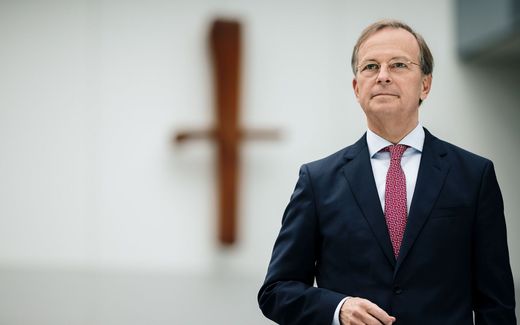How can churches handle populism?

The Pied Piper, who is also illustrated on the cover of the book “Alternatives to Populism from a Human Rights Perspective”. Photo Wikipedia
Christian Life
Populist politicians are active all over Europe. Last month, Geert Wilders won the elections in the Netherlands by far. Before that, Sweden and Italy saw their governments dominated by populist parties. How should European churches deal with this trend?
Receive CNE's weekly newsletter? Feel free to sign up here.
Populism is a difficult topic, Elizabeta Kitanovic warns. The concept is fashionable, but not in a positive way. The policy officer for Advocacy and Dialogue of the CEC is not very optimistic about the new political wave that is flooding Europe. “It brings more division into contemporary society.”

However, she is also convinced that European churches can make a positive difference in the debate. Therefore, Kitanovic edited a book, together with her co-editors Patrick Roger Schnabel and Sofia Caseiro: “Alternatives to Populism from a Human Rights Perspective”.
They believe it is the church's duty to counter this new trend. Kitanovic is strongly convinced that Christian beliefs and populism cannot go together. “At the heart of Christian faith is the belief that all people have an inherent dignity”, she explains. Populism, she believes, propagates the opposite idea. “That is more about exclusion and spreading hatred towards religious and ethnic minorities.”
Resentful hostility
The new book is published via CEC. It points out that one of the most important characteristics of populism is the “us versus them” sentiment that all of them create. “The populist way of doing politics is characterised by resentful hostility”, the first chapter reads. This hostility is directed at people who are different from the mainstream population, Kitanovic says. “Migrants, refugees and asylum seekers for example, are treated as if they do not have the right to be respected. Also, Jews and Muslims are often targeted by populists, who increase anti-Semitism and anti-Muslim hatred and challenge xenophobic behaviours.”
And that is the point where churches should intervene, the policy officer of the CEC believes. Because that is exactly where populism contradicts the heart of Christianity, which is rooted in love, respect and charity, she states. Even before the concept of human rights was invented, Christians already applied its principles, Kitanovic points out. According to her, human rights are at the core of the Ten Commandments, for example. “Human rights are officially invented 75 years ago by the United Nations. They command us to treat each other equally and without discrimination. However, they are founded on the same principles that we can find in the early teachings of the church, which are based on loving our neighbours.”
Societal trend
Dietrich Werner, one of the authors of the book “Alternatives to Populism from a Human Rights Perspective” has advice for churches that notice the societal trend of populism among their members. “They have the responsibility to counter populist discourse.”
• First, churches should beware of becoming part of an emotional debate when speaking with populists, one of the chapters read. Instead, it is the strength of a church to stick to a factual debate to correct “distorted perceptions” some populists have about reality.
• Secondly, churches should equip their employees with sufficient knowledge to defend essential Christian positions. Especially when it comes to hatred towards minorities, churches should stand their ground, as “any form of group related hostility or attitudes are irreconcilable with the basic values of Christian diaconia”, Werner writes. He also cites the German bishop Dröge, who argues that becoming an elder in the church, while providing active support to groups and movements that are hostile to human dignity and decency is irreconcilable with the order of the church and its ministries.”
• Thirdly, churches should beware of attacking persons instead of their opinions and statements, because the concept of human dignity also applies to those who hold a populist position. At the same time, churches must feel free to speak about the “Christian position over hate speech and racist propaganda”.
• Fourthly, the book warns about possible difficulties with right-wing media outlets. These may instrumentalise churches to attract and convince more people that populism is right. “Be careful with invitations to report to or be interviewed by [these] media”, Werner writes. They are “often viewed and consumed only in limited circles… with little to no reach out to a larger and more nuanced audience.”
• And lastly, churches should have a clear idea of where the church, parishes and diaconia institutions are positioned in society. They may even seriously consider concrete proposals to revise their ‘house order’ to define these positions, Werner suggests. That should prevent these institutions from “being misused by right-wing groups as battlegrounds for their propaganda.” That happened in the past as well, when Hitler used to convince believers that National Socialism was the right idea to believe in and the consequence was the Shoa, which one of the book chapters speaks about.
Judge
Furthermore, it is important that churches convey Biblical teachings about love for one's neighbours to their members, says Elizabeta Kitanovic. “Often, we judge others, and we don't ask people about their situations. If we are to be Christ's disciples, we are to condemn the sin, but to love the sinner. Love shows respect for people, also if they make very different choices than we would do.”
By doing so, Kitanovic continues, churches contribute to justice, peace and reconciliation in society that is now divided by so many fronts. And that is the remedy for populism, she believes. “Churches must counter against racism, xenophobia, anti-Semitism, anti-Muslim hatred and strengthening religious freedom for all.”
About the book
The Conference of European Churches (CEC) published the book “Alternatives to Populism from a Human Rights Perspective” as an outcome of the conference in Malaga in 2019 where academics, church leaders, representatives of international organisations brought in various perspectives on the issue from different corners of Europe. The book is compilation of 15 articles which present various perspectives to counter human rights violations linked to freedom of religion and belief. The opinions expressed in this book are those of the authors and contributors, consisting of lawyers, theologians and a journalist.
Related Articles









